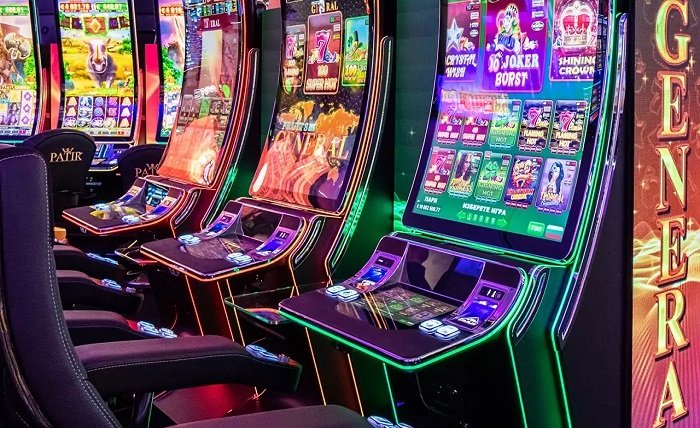The spinning reels on a slot machine may seem to stop at random positions, but behind the scenes, it is actually sophisticated software determining each outcome. Random number generators (RNGs) are the engine within slot machines that ensure each spin has an equal chance of landing on any possible combination of symbols. By exploring how RNGs work players can better understand the intricacies behind slot machine randomness.
How RNGs Digitally Emulate Slot Reels
Modern slots are far more advanced than the original mechanical machines which physically stopped spinning reels. Contemporary slots utilize RNG algorithms that digitally replicate this mechanical process. The RNG software mimics the randomness of a mechanical machine by generating hundreds of numbers every second. Each number corresponds to a specific symbol and reel position for that split-second spin.
This constant generation of numerical outcomes gives each spin a random set of symbols across the reels, the same way physical inertia and gravity randomly stopped the reels decades ago. The RNG ensures no patterns emerge across spins that players could try to predict or exploit. Regulators also rigorously test RNGs before casinos can offer a slot machine. So you can complete the 1Red Casino login and enjoy all their slots without any worries.
Creating Millions of Outcome Combinations
In addition to emulating mechanical reels, RNGs also enable slots to have a far wider range of potential outcomes compared to old-school machines with limited physical stopping points. By controlling reels digitally, RNG systems can program millions of different symbol combinations.
Having an expansive pool of outcomes is vital for slots because the mathematical chances of each winning combination must be proportional to the payout percentage. Low-tier wins with small payouts are more likely to hit than the top jackpot which may pay out thousands of times the bet amount. The expansive outcome selections possible with RNG programming ensure every winning combo has the precise probability to correspond with its payout size.
RNG Testing Ensures Fair Gameplay
Slot machine manufacturers must have their RNG systems evaluated by third-party test labs before releasing a new game. These labs analyze the randomness of outputs over millions of spins to verify there are no detectable patterns. Labs confirm all outcomes have equal weighting and the overall payout percentage matches the advertised rate.
RNG evaluation involves statistically intensive testing because detecting any biases or gaps in a slot with millions of possible stops is complex. But passing these assessments is mandatory for getting approval to launch a slot machine or online game. RNG certification gives players confidence the odds have not been secretly manipulated against them.
Seed Keys Introduce Additional Unpredictability
While base RNGs generate ample randomness, some slot developers take further steps by integrating seed keys. Seed keys are random number seeds fed into the RNG formula at set intervals to add another layer of unpredictability. The seed key changes aspects of how the RNG operates to avoid any potential patterns emerging over an extended period of spins.
These random number seeds make predicting future outcomes based on observing past spins virtually impossible, even if players could reverse engineer the RNG algorithm. Seed key technology demonstrates how slot creators continue innovating new ways to guarantee fair RNG performance.
RNGs Underpin Modern Slot Entertainment
The advent of RNGs revolutionized slot machines from simple mechanical contraptions into a sophisticated digital gaming experience. Players can enjoy immersive graphics, interactive bonus features and millions of possible winning lines only made possible by the advanced RNG systems running behind the scenes.
While RNG programming now rightly takes center stage in slot design, the pioneering mechanical slots still hold nostalgia for many casino patrons. Some slot makers cater to this demand for vintage slots by releasing hybrid machines with physical reels driven by RNG-controlled stops. This perfect blend of mechanical reels and digital randomness illustrates the ongoing role of RNGs in slot entertainment.
